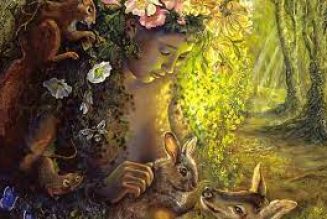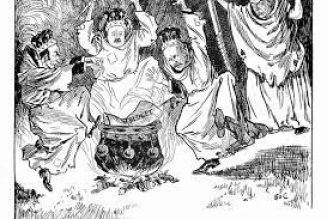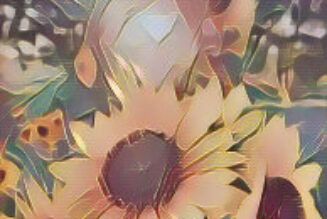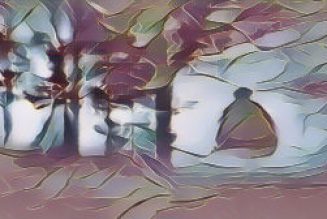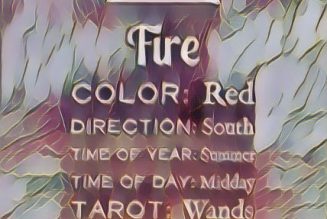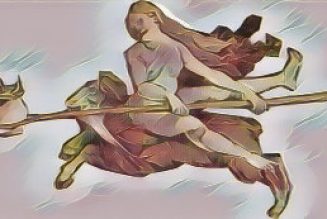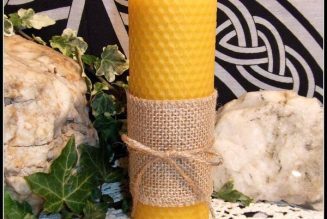These deities may be invoked for strength, success, energy, inspiration and increase.
Apollo
Apollo, the Greek Sun God, was twin brother of Artemis, the Moon Goddess. As god of the solar
light, Apollo made the fruits of the Earth ripen, and at Delos and Delphi where he slew Python, the
first crops were dedicated to him.
(Python, the great lightning serpent, was the son-consort of the Mother Goddess in her form of
Delphyne, the Womb of Creation, fertilised by Python. Python in this sense predated all other gods
and was later called the Dark Sun, Apollo’s alter ego. The Ancient Greeks rededicated his shrine to
Apollo.)
Apollo was god of prophecy as well as music, poetry, archery, healing and divination. He is very
strongly animus and is good for all rituals of power, ambition and inspiration, as well as those areas
under his patronage. Men tend to work better with him than women.
Aine
Aine is daughter of Manananann, Celtic Sea God and ruler of the Isle of Man and goddess of the
cycles of the solar and lunar year. Even during the twentieth century, she was remembered on the Hill
of Aine in Ireland, by torchlight processions and burning straw at midsummer and also at the old corn
harvest, Lughnassadh, at the beginning of August. She is also linked with love, fertility and healing.
Ama-terasu Omikami
Ama-terasu Omikami is the Ancient Japanese Sun Goddess. Her name means ‘Great August Spirit
Shining in Heaven’ but she is also called Shinmet, ‘Divine Radiance’ and O-hiru-me-no-muchi, ‘Great
Female Possessor of Noon’.
She is good for female-focused Sun rituals and for ceremonial magick.
Helios
The Greek god Helios, known to the Romans as Sol, was regarded as the Sun itself. He ascended the
heavens in a chariot drawn by winged snow-white horses to give light and in the evening descended
into the ocean. Homer wrote:
‘Drawn in his swift chariot, he sheds light on gods and men alike; the formidable flash of his eyes
pierces his golden helmet, sparkling rays glint from his breast and his brilliant helmet gives forth a
dazzling splendour. His body is draped in shining gauze, whipped by the wind.’
He is especially associated with the life force and renewing health and energy.
Horus
Horus was the Ancient Egyptian Sky God, represented as a falcon or a falcon-headed man. His eyes
were the Sun and Moon and his wings could extend across the entire heavens. He was frequently
associated with the morning aspect of Ra, the Sun God, and worshipped as Re-Harakhte. The son of
Isis and Osiris, he is often depicted as an infant on his mother’s lap and together the parents and child
form a trinity.
Horus brings clarity of mind and purpose and the ability to seize upon an opportunity, and is effective
for uncovering secrets, deception and illusion.
Lugh
Lugh, the Celtic ‘shining one’, who gives his name to Lughnassadh, Celtic festival of the first harvest,
was the young solar deity who replaced the Dagda, father of the gods, as supreme king. He was
associated with sacrifice, as the Sun King who was reborn each year at either the mid-winter solstice
or the spring equinox.
Legend has it that when Lugh arrived to join the Tuatha de Danaan, he went to the palace of Tara and
asked for a position in the court. (The Tuatha de Danaan were the ancient Irish gods and goddesses,
literally ‘the tribe of Danu’, who was the creatrix goddess.) He said he was a carpenter, but was told
that the company of gods already had one.
Lugh then declared he was a smith but again was told that the deities possessed such a craftsman. He
then announced that he was a poet, then in turn a warrior, historian, hero and sorcerer. Each position
was filled. Lugh then demanded whether any one person could perform all these tasks as he could. As
a result, he was admitted to the Tuatha de Danaan and eventually became their leader.
You can invoke Lugh especially at the time of Lughnassadh, for the reaping of benefits sown earlier
in the year, but also at any time for adaptability, versatility, innovation and originality.













